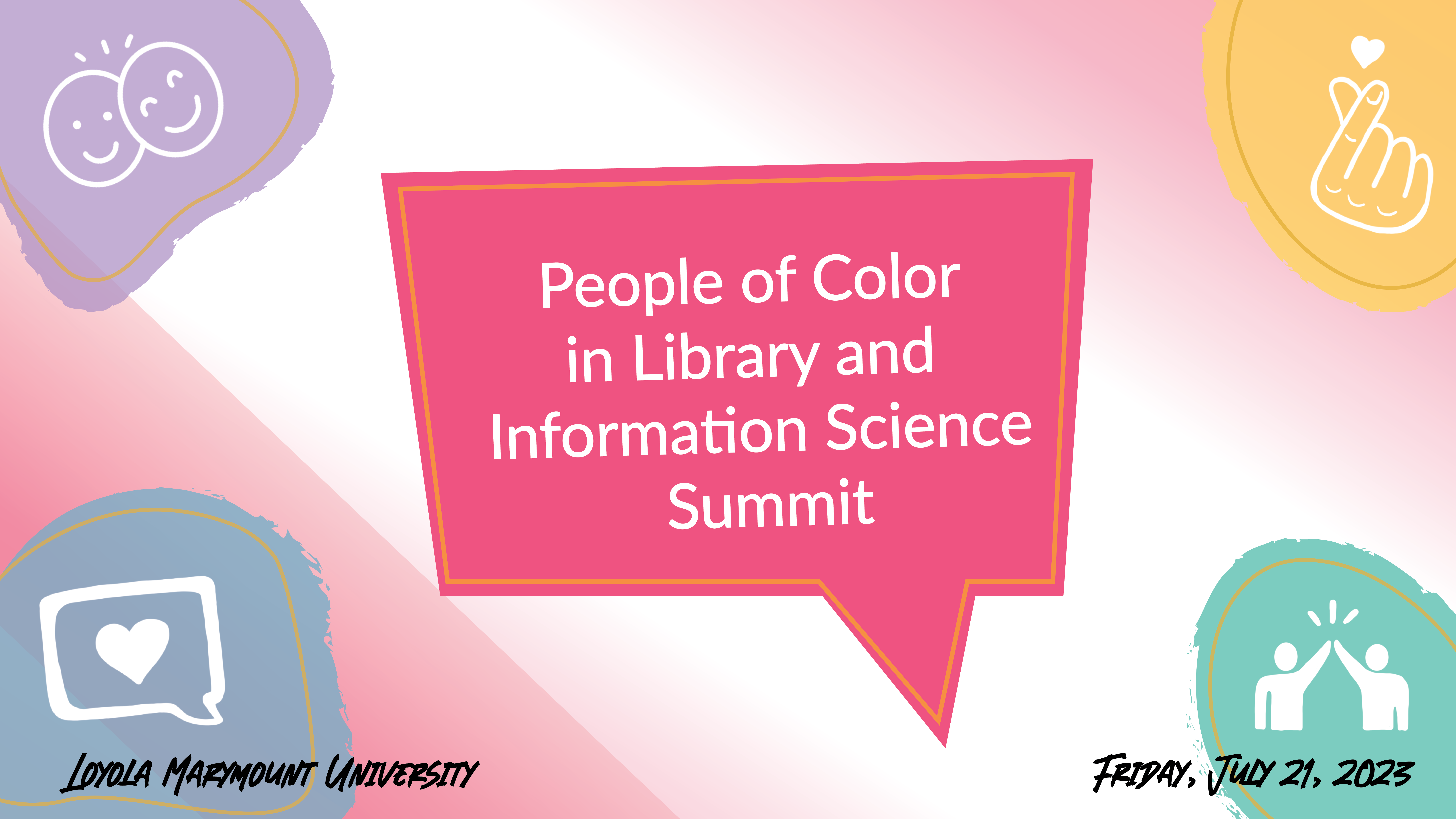Session 1D: What does this have to do with our work?: Creating a library-specific anti-racism toolkit
Event Type
Presentation
Location
U-Hall Classroom 3320
Start Date
21-7-2023 11:15 AM
End Date
21-7-2023 12:15 PM
Description
When staff or patrons at our library raise concerns around racism and other equity issues, lack of action or progress is often excused with the justification that people want to work on them but simply don’t know how. While individuals and projects may be actively engaged in anti-racist practice, the organization as a whole struggles to move beyond introductory interpersonal efforts towards actionable changes that address structural racism at the institutional level and in our particular professional domains. Consequently, the library diversity council tasked a team with developing an institution-specific anti-racism toolkit – a series of online training modules, informed by principles of instructional design, that would be available to all library employees and serve as a common foundation around racism and anti-racism across the organization. The anti-racism toolkit balances a strong historical and conceptual foundation with specific exploration of the dynamics and manifestations in our local institutional context. Drawing on scholarly work in LIS, history, sociology, and education, and the library’s documentation of its internal diversity work, the toolkit provides a grounded exploration of how white supremacy has historically impacted our university and library’s services, spaces, collections, and culture. The toolkit was published in April 2023 after two years of effort from our team of student fellows, library staff, and librarians. The anti-racism toolkit is now available for all library employees to use, but organizational implementation and long-term impact remain open questions. While the toolkit seeks to provide our library with a common understanding of where we currently are as an institution and how we got here, structural racism wasn’t created by insufficient anti-racism training opportunities for employees. Meaningful structural change requires more than awareness; it requires political will and labor up and down the organizational hierarchy.
Outcomes
After attending this presentation, participants will be better equipped to:
- understand how anti-racist trainings, resources, and programming can be tailored to better meet the specific needs and context of your local institution, including determining when to create your own content
- navigate creating space for collaborative and consensual decision making and labor division around DEIA work, including project boundaries and scoping and addressing challenges created by the broader organizational climate
Session 1D: What does this have to do with our work?: Creating a library-specific anti-racism toolkit
U-Hall Classroom 3320
When staff or patrons at our library raise concerns around racism and other equity issues, lack of action or progress is often excused with the justification that people want to work on them but simply don’t know how. While individuals and projects may be actively engaged in anti-racist practice, the organization as a whole struggles to move beyond introductory interpersonal efforts towards actionable changes that address structural racism at the institutional level and in our particular professional domains. Consequently, the library diversity council tasked a team with developing an institution-specific anti-racism toolkit – a series of online training modules, informed by principles of instructional design, that would be available to all library employees and serve as a common foundation around racism and anti-racism across the organization. The anti-racism toolkit balances a strong historical and conceptual foundation with specific exploration of the dynamics and manifestations in our local institutional context. Drawing on scholarly work in LIS, history, sociology, and education, and the library’s documentation of its internal diversity work, the toolkit provides a grounded exploration of how white supremacy has historically impacted our university and library’s services, spaces, collections, and culture. The toolkit was published in April 2023 after two years of effort from our team of student fellows, library staff, and librarians. The anti-racism toolkit is now available for all library employees to use, but organizational implementation and long-term impact remain open questions. While the toolkit seeks to provide our library with a common understanding of where we currently are as an institution and how we got here, structural racism wasn’t created by insufficient anti-racism training opportunities for employees. Meaningful structural change requires more than awareness; it requires political will and labor up and down the organizational hierarchy.
Outcomes
After attending this presentation, participants will be better equipped to:
- understand how anti-racist trainings, resources, and programming can be tailored to better meet the specific needs and context of your local institution, including determining when to create your own content
- navigate creating space for collaborative and consensual decision making and labor division around DEIA work, including project boundaries and scoping and addressing challenges created by the broader organizational climate





